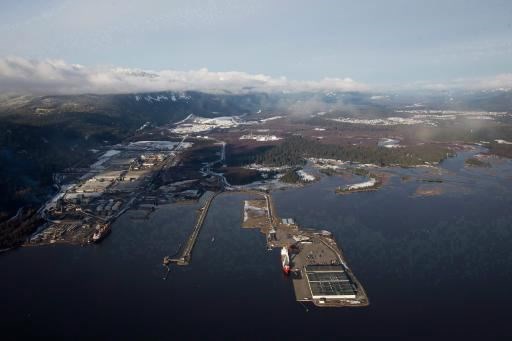Two initiatives announced by Natural Resources Minister Greg Rickford in Prince Rupert earlier this month to engage First Nations in the development of energy infrastructure projects, like pipelines, have received a lukewarm welcome from two local aboriginal groups.
Rickford announced the opening of a Major Projects Management Office in Vancouver -which opened last week- and a tripartite forum to include First Nations leaders, the province and federal government.
Chief Martin Louie, of the Nadleh Whut'en First Nation near Fort Fraser, said if the goal of the initiatives is to engage First Nations it has already started on the wrong foot - Louie did not hear of the announcement until contacted by The Citizen after the announcement.
The Nadleh Whut'en are a member of the Yinka Dene Alliance, one of six First Nations that have signed a declaration banning the proposed Northern Gateway pipeline from their traditional lands.
Instead of another office or forum to engage First Nations, the federal and provincial governments need to acknowledge aboriginal rights and decision-making authority over their traditional territory, Martin said.
"All the plans are laid on the table, and then they come to us to [say] if it is good or bad," he said. "It's not going to cut it anymore. We want to deal with the province so that we go through the regulatory process with them. If business wants to do business in B.C., they should come to us and tell us what is happening."
Under the current consultation process, First Nations have very limited time to hire or otherwise obtain the expertise to provide well-researched feedback on proposed industrial projects, he said.
"It keeps us in the dark, because we don't have the people who have the expertise about mining, about oil and gas," he said. "[The consultation process] is never going to work until we're part of the decision-making process and revenue stream."
Carrier Sekani Tribal Council Chief Terry Teegee -a group which has also been a vocal opponent of the proposed Northern Gateway pipeline -said the federal government should have made these efforts to engage First Nations years ago.
"It's a real missed opportunity. They should have done this awhile ago. We've been talking about [Enbridge] for over nine years," Teegee said. "Finally there is a presence here by Natural Resources Canada. [But] it's yet to be seen how this office will work."
The creation of the office and forum could be used as way for the federal government to say it has consulted with First Nations -a legal obligation -before approving major energy projections, he said.
"There is always the risk of [it being] set up to rubber stamp projects. [But] the courts have stated themselves... there has to be adequate consultation and accommodation," Teegee said. "There could be some value, in terms of bringing up issues and trying to restart talks."
ENGAGEMENT EFFORT
The Major Projects Management Office, established in Ottawa in 2007, opened a western office in Vancouver last week. The office provides a single contact point for First Nations and industry in B.C. and Alberta to "identify concrete action that will help support their involvement in West Coast energy projects in areas such as employment and business opportunities, and tanker and pipeline safety systems," according to a statement released by Natural Resources Canada.
Although the majority of proposed liquified natural gas (LNG) pipelines and terminals -along with the proposed Enbridge Northern Gateway duel oil/condensate pipeline -are based in northern B.C., the major projects office was located in Vancouver because the city is a transportation and business hub, according to information released by Natural Resources Canada.
Rickford also announced the creation of a tripartite forum - involving First Nations leadership and the federal and provincial governments -to share information and discuss common interests in the energy sector.
Both measures were recommendations made by Douglas Eyford, special federal representative on West Coast energy infrastructure, in his final report to the federal government in December.
"Our government is committed to continue working in partnership with First Nations to strengthen their engagement in energy projects, with training for employment and business opportunities..." Rickford said in a statement. "Today we are taking concrete steps as part of our ongoing commitment and sustained engagement with First Nations..."


